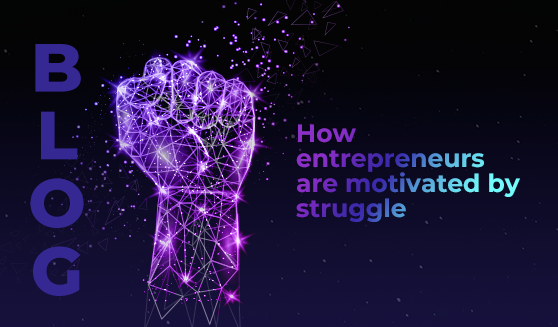
Why sustainability is the heart of the smart city revolution
The smart cities of the future will use tech to lower emissions, cut urban temperatures, and improve quality of life in highly populated areas.


The world loves trying to define what entrepreneurs are. Countless studies explore the mysterious qualities of entrepreneurs, searching for a reason why some people tenaciously pursue entrepreneurial endeavours, and others don’t.
This 2022 study, for example, attempted to uncover the dominant characteristics behind entrepreneurial intention and success over the last decade. The researchers defined ten leading traits:
And while studies like these are very interesting, they tend to identify a broad range of qualities that might lead to an entrepreneurial spirit.
At LEAP, we’ve learnt that there’s no one kind of person destined to become a successful entrepreneur. There are so many variables involved that sometimes the most unlikely innovator can become a shining light in their field.
The stories of how an idea and a business came about are as varied as the individuals who have those ideas and start those businesses. But we often see brilliant tech ideas that grow out of some kind of challenge or struggle – and we want to highlight some of those stories here.
Entrepreneurs need conviction – both in their own competency, and in their ideas. Going through a personal struggle can generate business ideas. And when your idea is rooted in that struggle, it grows from conviction.
You know the problem you’re solving needs to be solved, and – crucially – you know why. That kind of certainty helps an entrepreneur to remain steady when they’re confronted with setbacks, and drive creative problem-solving.
Andrew Funk (Founding President at Homeless Entrepreneur) developed his business idea from a personal understanding of what it’s like to become homeless.
“Going through a homeless experience myself, and empowering people out of poverty since 2015, has helped our organisation understand the homeless individuals we support,” he said.
Homeless Entrepreneur aims to speed up the process of ending homelessness, by supporting and nurturing the talent of people without homes – giving them the opportunity to launch their own businesses.
Building his organisation with a deep understanding of what it feels like to be homeless has enabled Funk to lead with compassion and real insight into the problems that people are facing. Every time you interact with Funk, whether it’s through his organisation’s digital marketing output, or in person – his sense of purpose is evident.
Sean Garnier (Founder of Urbanball) began his professional football career at Auxerre in France – but an injury forced him to retire early.
But he didn’t give up; instead of turning away from football completely, he decided to create a career in freestyle football – the art of juggling a football using any part of the body apart from the forearms and hands.
“I was fortunate to have a talent for freestyling, so I chose to forge my own path in this sport,” Garnier told us.
The transition from professional football to freestyle football shows that Garnier opened his mind to new possibilities after his injury – instead of giving up completely. And that same open-mindedness led him to found Urbanball, a blockchain-based street football ecosystem. Together with EX-Sports, a decentralised collectible card reward system, he developed a platform that offers resources and support to talented young footballers.
“The platform integrates technology throughout, from the app to talent management and the use of NFTs and gaming. For instance, we scout talent through actual Urbanball Fight matches, create digital collectible NFTs of the winners, who also become playable characters in the world's first street football web3 mobile game where players can earn royalties.”
It’s a big leap from the football pitch to blockchain tech. But through injury, recovery, and resilience, Garnier got there.
No entrepreneur can be successful without the ability to solve problems. And being presented with problems in your personal life can be a powerful catalyst for developing a problem-solving mindset.
Sharene Lee (Co-Founder of Takadao) guided her startup to win the Aviatrix Award at LEAP 2023 – and the company’s mission comes directly from Lee’s determination to solve a problem she’d experienced.
“As a Muslim, I’ve typically been excluded from traditional financial services as most of these are not shariah-compliant,” she explained. “In addition to the Muslim community, there are many communities around the world that are also excluded from banking and insurance for other reasons, generally related to profit.”
So Lee is taking advantage of emerging technologies to solve that problem – using blockchain and cryptocurrency. It’s a brilliant example of the way that when a problem is personal to you, your curiosity pushes you to look outside of current norms and explore solutions that others might miss.
Let us be clear: we’re not saying that all successful entrepreneurs have to go through hardship in order to come up with innovative ideas, and pursue them with tenacity. But personal challenges are a powerful starting point for creative problem-solving – and businesses built on foundations like that are full of potential for future success.
Where do your big ideas come from?

The smart cities of the future will use tech to lower emissions, cut urban temperatures, and improve quality of life in highly populated areas.

Discover the cities that rank highly for smart city preparedness, and learn why locally relevant innovation is more important than cutting-edge tech.

If you’ve ever thought about becoming a tech investor, read this – learn why investors are the quiet force shaping the future of the industry.

The smart cities of the future will use tech to lower emissions, cut urban temperatures, and improve quality of life in highly populated areas.

Discover the cities that rank highly for smart city preparedness, and learn why locally relevant innovation is more important than cutting-edge tech.

If you’ve ever thought about becoming a tech investor, read this – learn why investors are the quiet force shaping the future of the industry.